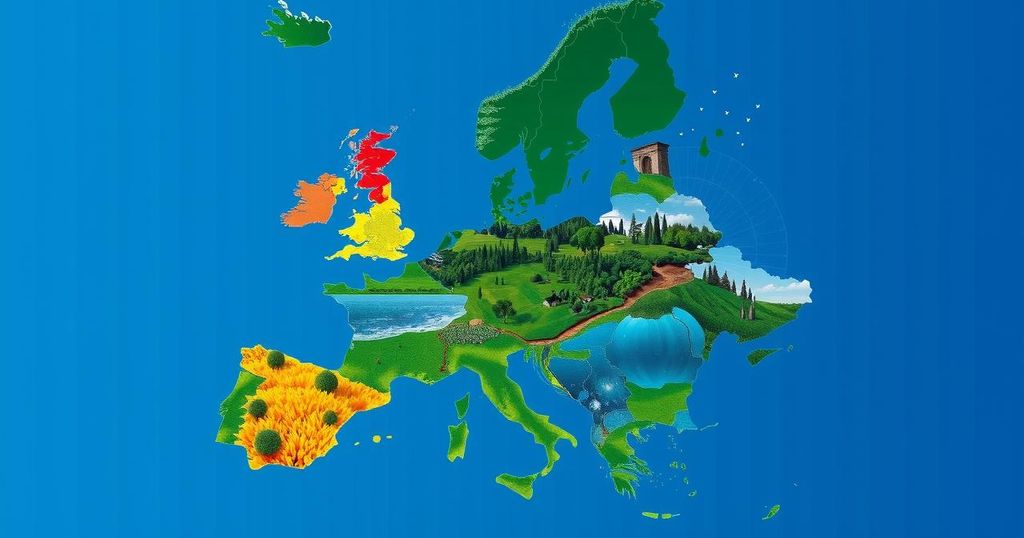The EU’s climate policies may appear ambitious, targeting a 55% emission reduction by 2030; however, analysis indicates that the EU has already exceeded its carbon budget, raising significant concerns about its commitment to climate justice. COP29 presents an opportunity for the EU to rectify this by implementing more equitable and ambitious climate targets that address both ecological limits and the social dimensions of climate change.
Global heating is more than just an environmental challenge; it is fundamentally a social issue that requires comprehensive action from the European Union (EU). The recent United Nations Convention on Climate Change, COP29, highlights the urgent need for a financial framework to mitigate climate change and adhere to the Paris Agreement’s goals. Although the EU touts ambitious strategies to reduce emissions by 55% by 2030 and achieve carbon neutrality by 2050, recent research indicates that its efforts are insufficient when viewed through the lens of climate justice.
The study reveals that the EU has far surpassed its allocated carbon budget, having utilized it in several scenarios projected to 2050. The consequences of this over-expenditure not only undermine global efforts to limit temperature increases to 1.5C or 2C but perpetuate a form of colonial inequality, wherein the EU, along with other wealthy nations, exacerbates the vulnerabilities faced by the most affected communities. As climate injustice remains a prevalent issue, it is imperative that the EU aligns its policies with both ecological limits and social equity.
The overarching implications of the findings stress that the EU’s policies must urgently evolve to fulfill its moral responsibility to poorer nations that contribute least to climate change yet bear the brunt of its impacts. The call is for increased ambition in targets that account for the historical emissions and lived realities of those suffering the most. This approach hinges on the principle of “common but differentiated responsibilities” established by the United Nations, ensuring those with greater historical accountability contribute proportionately to global climate initiatives.
The current global climate crisis has necessitated international engagement, with COP29 serving as a major forum for coordinating efforts to combat climate change. This meeting in Azerbaijan focuses on establishing a financial framework crucial for climate mitigation and adaptation, ensuring nations adhere to the temperature limitations set by the Paris Agreement. Although the EU positions itself as a leader in climate action, recent analyses reveal a disconnect between its proclaimed policies and actual responsibilities under climate justice principles, particularly in relation to its historical emissions.
The European Union’s climate policies must align with the principles of equity and justice, ensuring that it not only aims for high targets but also acknowledges its role in historical emissions. With a substantive portion of its carbon budget already expended, the time has come for the EU to integrate social considerations into its climate strategy, pursuing ambitious targets that reflect both ecological necessities and the disparities faced by the most vulnerable regions. Only through such an approach can the EU hope to fulfill its obligations under International Climate Agreements and foster global climate equity.
Original Source: theconversation.com






